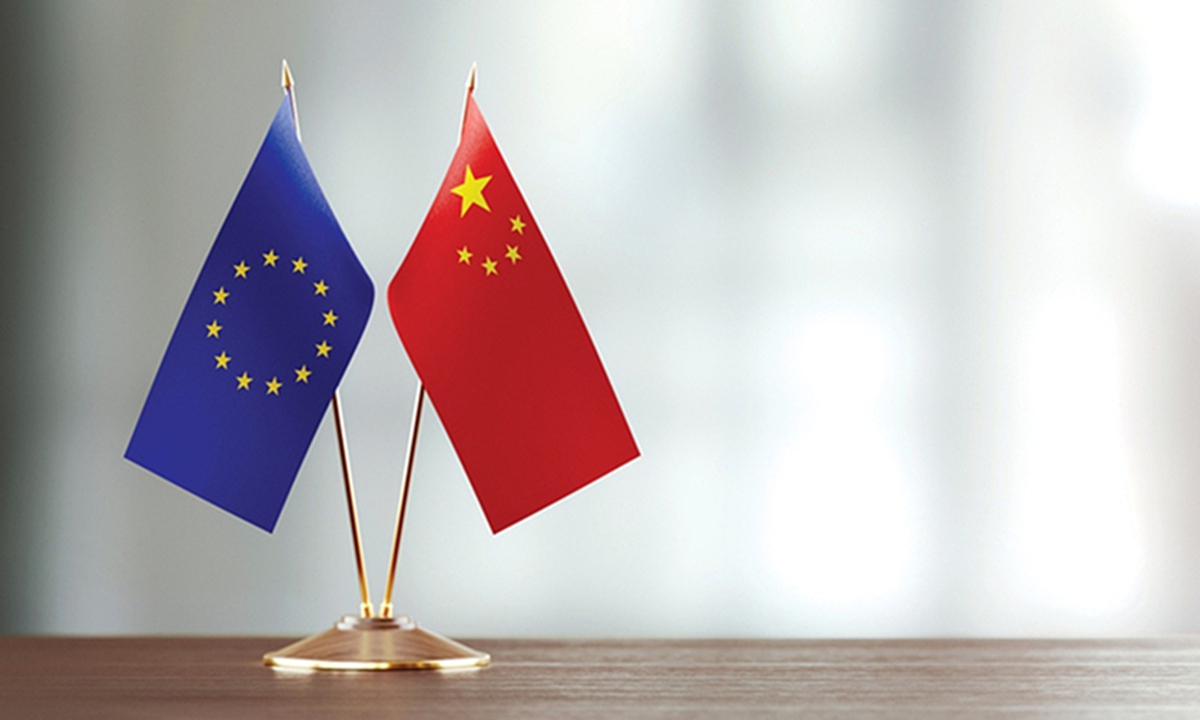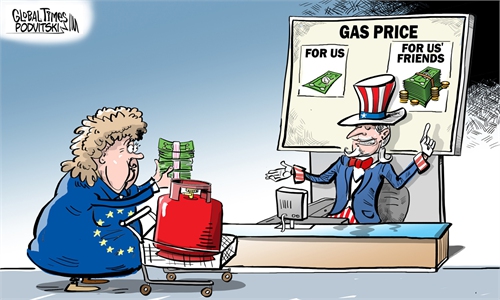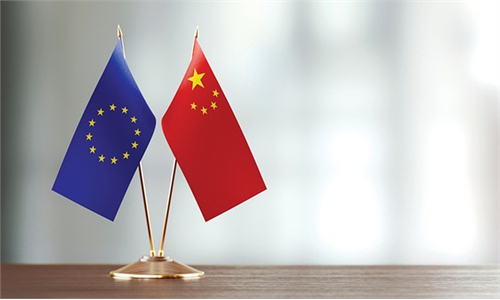
China-EU Photo: VCG
In a report released on Monday, the Brussels-based climate group Transport & Environment said that the growth of electric vehicle (EV) sales in the EU had slowed and the bloc needs to provide more regulatory incentives for its carmakers to scale up EV production or risk losing market share to Chinese rivals, Reuters reported.The report can be seen as a microcosm of the EU's anxiety about being overtaken by China. Despite the close economic ties between China and the EU, some people within the EU still regard China as a rival, and they have even stepped up their "decoupling" rhetoric against China under the guise of "reducing dependence."
Yet, it is comforting to note that major European countries such as Germany and some EU officials have expressed supportive stances on economic relations with China in recent days. Last week, German Chancellor Olaf Scholz said "decoupling" from China would be a wrong path, while EU trade commissioner Valdis Dombrovskis said that "decoupling" from China is not an option for companies in the EU, according to media reports.
At a time when the European economy is facing such challenges as the Russia-Ukraine conflict, an energy crisis and high inflation, it is crystal clear whether China and the EU should reduce or strengthen bilateral economic and trade cooperation.
Take the vehicle sector as an example. European automakers are clearly more rational than some European politicians who have misconceptions about economic and trade relationships with China, as they continue to invest in China.
Last week, Volkswagen announced plans to invest 2.4 billion euros ($2.3 billion) to set up an autonomous driving joint venture with China's Horizon Robotics. In June, BMW officially opened a new $2.2 billion factory in China, which will largely focus on the production of EVs. It's the automaker's largest investment in China. In July, Audi began construction of an EV plant in China, in partnership with state-owned automaker FAW Group, to increase its exposure to fast-growing local demand.
One reason behind European carmakers' robust investment in China is that the country, as the world's largest single market for cars, still has huge growth potential. In the first nine months of this year, China's new-energy vehicle (NEV) sales reached 4.57 million, up 110 percent year-on-year.
The country's market opening dividend is another reason why foreign automakers are increasingly attracted to China. China lifted the foreign ownership restrictions on special-purpose vehicles and NEVs in 2018, and this liberalization was followed by commercial vehicles in 2020 and passenger cars in 2021.
Meanwhile, with the growing demand for NEVs in Europe, Chinese carmakers are showing increasing interest in the market. German car rental company Sixt said recently it intends to purchase more than 100,000 EVs from Chinese automaker BYD for its European fleet between now and 2028, according to media reports. NIO, SAIC, Geely and Xpeng are trying to enter the European market.
Whether European automakers go to China or Chinese automakers go to Europe, the development actually points to closer cooperation between Chinese and European companies in NEVs and their industry chains, which is conducive to promoting the green transformation and sustainable development of both sides.
What has happened to the auto sector is just one facet of mutually beneficial cooperation. In 2021, China-Europe trade exceeded $800 billion for the first time, which shows that extensive shared interests and similar strategic goals in bilateral cooperation have strong resilience and potential.
Admittedly, there is ideological friction between the two sides, but no matter how tough some Europeans talk about China, the bilateral relationship should not deviate from the main line of pragmatic cooperation.
As long as we continue to strengthen cooperation and interaction with rational forces in Europe and expand scope for economic and trade cooperation, anti-China voices will eventually lose to rational forces of the EU. That's why we remain confident that the China-EU Comprehensive Agreement on Investment will be pushed forward despite current setbacks. After all, it is in the overall interest of both sides.



